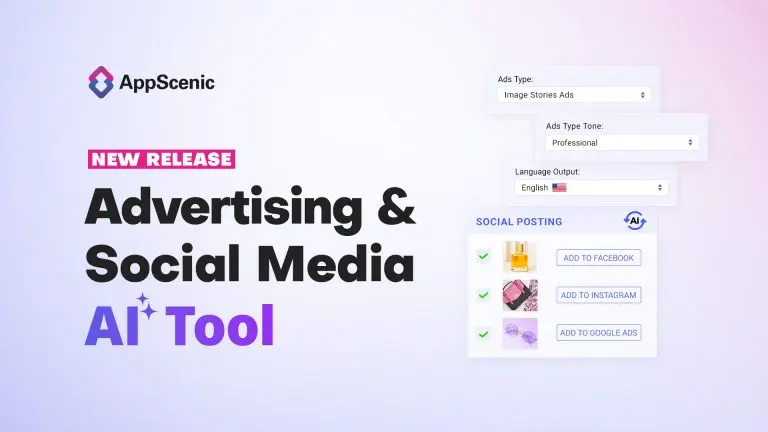We live in an ever-evolving online business world, where entrepreneurs are constantly searching for the best ways to generate income with minimal investment. Two popular methods that have gained huge popularity over the years are dropshipping and affiliate marketing.
Both have their unique advantages, but which one is the right fit for you? In this article, we’ll break down the differences between dropshipping and affiliate marketing, highlight their pros and cons, and help you decide which model is best suited to your goals.
Table of Contents
What is dropshipping?
Dropshipping is an ecommerce business model that allows you to sell products without holding inventory. Instead of purchasing products in bulk, you partner with suppliers who handle inventory storage, packing, and shipping.
As a dropshipper, your role is to set up an online store, market the products, and take customer orders. Once a customer makes a purchase, you place an order with your supplier, and they ship the product directly to the customer.
Key features of dropshipping
- No need for inventory: One of the main appeals of dropshipping is that you don’t need to worry about stocking products. This minimizes upfront investment and financial risk.
- Profit margins: You purchase products at wholesale prices and sell them at retail, making a profit from the markup. While profit margins can be slim (usually 10-30%), you have control over pricing and can scale your business to increase profits.
- Flexibility: You can run a dropshipping business from anywhere with an internet connection, as long as you have access to your supplier and your store’s backend.
- Control over branding: Dropshipping allows you to create and market your own brand. You have the freedom to customize your store, choose your products, and build a unique identity that customers will recognize.
In case you’re wondering if dropshipping is still worth it in 2024 and beyond, well, it definitely is. There are many stats and stories out there proving this, but maybe the most important dropshipping statistics to know at the moment comes from this Statista study. According to them, it’s forecasted that the global dropshipping market size will reach $301 billion in 2024, and it will continue to grow, reaching $476.1 billion by 2026.
Read more: How to Launch a Dropshipping Business in 6 Easy Steps
What is affiliate marketing?
Affiliate marketing is a performance-based marketing model where you earn a commission by promoting someone else’s products. As an affiliate marketer, you don’t sell products directly or handle customer orders. Instead, you refer potential buyers to the merchant’s website using a unique affiliate link. When someone makes a purchase through your link, you receive a percentage of the sale as a commission.
And this business model is quite profitable too. According to Statista, in 2023, spending on affiliate marketing in the United States reached $9.56 billion. It’s also projected to increase to $10.72 billion in 2024 and further to 12 billion in 2025. Also, around 80% of brands offer affiliate programs, making it an ideal time to start leveraging this marketing model.
Key features of affiliate marketing
- No product or customer management: With affiliate marketing, you don’t need to deal with inventory, customer service, or order fulfillment. Your only responsibility is to drive traffic to the merchant’s website.
- Low risk: Since you don’t need to invest in products or manage a store, affiliate marketing carries low financial risk. You earn money based on the sales generated through your referrals.
- Earnings based on performance: Your income depends entirely on how well you promote the products and how many sales you generate. Commission rates vary depending on the product, merchant, or platform, with rates ranging from 5% to 50% or more.
- Flexible and scalable: Similar to dropshipping, affiliate marketing can be done from anywhere. You can promote a wide range of products and niches, from physical products to digital services, without having to manage the backend operations.
Dropshipping vs. affiliate marketing: pros and cons
Both dropshipping and affiliate marketing have their own sets of advantages and challenges. Let’s explore these in more detail.
Pros of dropshipping
- Low startup costs: You don’t need to invest heavily in inventory upfront, which significantly lowers the barrier to entry.
- Control over pricing: Since you’re selling directly to customers, you have control over your pricing strategy and can set your own profit margins.
- Branding opportunities: Dropshipping allows you to build a recognizable brand, which can increase customer loyalty and retention.
- Diverse product offering: You have the flexibility to offer a wide variety of products, including testing new ones without the risk of holding unsold stock.
Cons of dropshipping
- Slim profit margins: Dropshipping margins can be thin, especially if you’re competing in a saturated niche.
- Reliance on suppliers: You’re dependent on your suppliers for product quality and timely delivery. Poor supplier performance can damage your reputation.
- Customer service: Even though you don’t handle inventory, you’re responsible for customer service. If something goes wrong with an order, it’s your job to address the issue.

Pros of affiliate marketing
- No inventory or fulfillment hassles: You don’t need to worry about storing, shipping, or managing products. The merchant handles all of that.
- Low overhead: With no inventory or fulfillment costs, your only real expenses are related to marketing and promoting the products.
- Passive income potential: Once you set up affiliate marketing content and drive traffic, you can potentially earn passive income as long as your links generate sales.
Cons of affiliate marketing
- Limited control: You have no control over the product, pricing, or customer experience. If a product is discontinued or the merchant changes the terms, it directly affects your earnings.
- Commission-based earnings: You only earn a percentage of each sale, and commissions can vary widely. Your income is tied to how much traffic and conversions you can generate.
- Fierce competition: Depending on your niche, affiliate marketing can be highly competitive, and you may need to invest heavily in marketing strategies to stand out.
Which one is right for you?
Choosing between dropshipping and affiliate marketing ultimately depends on your goals, skills, and resources. Let’s break down some considerations to help you decide:
Control and branding
If you want to build a long-term brand and have more control over the products and customer experience, dropshipping might be the better choice. You can establish your own brand identity and scale your business over time.
Passive income vs. active management
Affiliate marketing is ideal if you’re looking for more passive income and want to avoid the responsibilities of managing a store or dealing with customer service. Once you’ve built your marketing funnels, you can potentially earn income with less hands-on work.
Profit margins
While both business models can be profitable, dropshipping allows for higher revenue potential since you set your own prices.
However, affiliate marketing requires less financial risk upfront and could be more appealing if you’re working with a smaller budget.
Time commitment
Dropshipping requires more active management, including handling customer inquiries and overseeing order fulfillment. Affiliate marketing, on the other hand, can be more hands-off once you’ve set up your content and promotional channels.
Technical skills
If you enjoy creating and optimizing websites, managing ads, and diving into ecommerce logistics, dropshipping might suit your skills better.
If you prefer writing content, creating videos, or leveraging social media to drive traffic, affiliate marketing could be a more natural fit.

Want to start dropshipping the right way?
So, you’re ready to start a dropshipping business? It may seem simple on the surface, create a store, add products, and let suppliers handle the rest. However, many beginners quickly find out that dropshipping can be overwhelming without the right guidance.
This is where our AppScenic Dropshipping Course comes into play. If you’re considering dropshipping or want to grow your current business, our course is designed to provide the clarity and strategy you need for success.
What you’ll learn in this dropshipping course
Our course covers all the key aspects of building a successful dropshipping business, ensuring you have the tools and knowledge needed to succeed. Here are some of the core topics we cover:
- Finding winning products: You don’t need to reinvent the wheel when choosing products. Our course teaches you how to identify in-demand products and avoid oversaturated markets, setting you up for success from the start.
- Building a real brand: Dropshipping isn’t just about listing products; it’s about creating a recognizable brand. We’ll show you how to design a professional website, establish customer trust, and build a real business, not just another dropshipping store.
- Choosing reliable suppliers: Fast and reliable shipping is critical for happy customers. One of the main focuses of our course is working with trusted suppliers who can offer quick shipping, ensuring your customers are satisfied and return for more.
- Running effective ads: Successful dropshipping is about having a clear advertising strategy. Rather than wasting money on ads with no purpose, you’ll learn how to run effective ad campaigns that are targeted, optimized, and capable of generating a strong ROI.
Ready to fast-track your dropshipping journey? Learn more about the AppScenic Academy and how our course can fast-track your success.

Looking for an Affiliate Program?
In case you are looking to start your journey into affiliate marketing, the AppScenic Affiliate Program could be the perfect fit. Our platform is known for being one of the most advanced dropshipping automation platforms in the world, but it also offers an exceptional affiliate program that stands out in the market.
Whether your audience consists of retailers, ecommerce store owners, or even suppliers, the AppScenic affiliate program provides excellent earning potential.
How the AppScenic Affiliate Program works
We are offering a flexible and profitable affiliate program depending on your audience. Here’s how it works:
- If your audience consists of online retailers or store owners, you can earn unlimited commissions. For every retailer you refer to AppScenic, you receive a 65% commission on their first month’s payment, and then you continue to earn a 33% recurring lifetime commission as long as they maintain an active subscription. This means long-term, passive income, as every subscription renewal results in more revenue for you.
- If your audience includes suppliers, manufacturers, handmade artists, or local shops, you can earn a flat rate of $50 for every supplier that joins AppScenic through your referral link.
For more information, visit our AppScenic Affiliate Program page.
Conclusion
As you see, both dropshipping and affiliate marketing offer great opportunities for online entrepreneurs, but they cater to different skill sets and goals.
Dropshipping is ideal for those looking to build a brand and willing to invest more time and effort in managing a store.
Affiliate marketing, on the other hand, is perfect for individuals seeking a more passive income stream without the challenges of product fulfillment and customer service.
Consider your strengths, financial resources, and long-term vision when choosing between the two models. Whether you opt for dropshipping or affiliate marketing, success comes down to effective marketing, persistence, and a willingness to adapt to changes in the ecommerce landscape.











